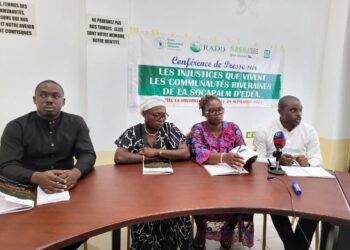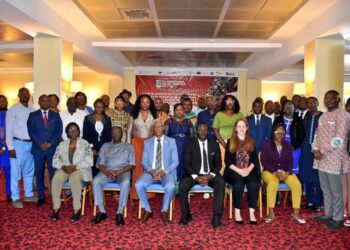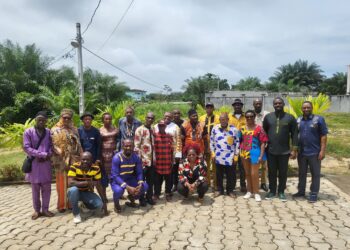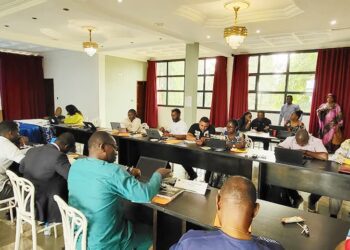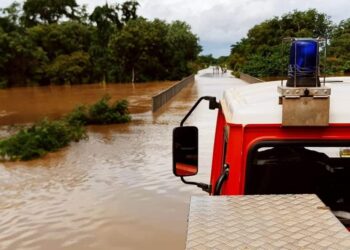By Elias Ngalame
According to a press release by AFF secrétariat, the organization with funding from the Swedish International Development Cooperation Agency (Sida) is implementing a project titled “Strengthening management and use of forest ecosystems for sustainable development in Africa”. The project seeks to generate and share knowledge and information through partnerships in ways that will provide inputs into policy and decision-making options and capacity building efforts, for improved forest management that will better address climate change impacts as well as contribute to poverty alleviation and environmental protection in Africa.
It is against this backdrop that some 70 African forestry stakeholders from government forest administrations, non-governmental organizations, research, academia, private sector, media as well as youth and women-based organizations from selected African countries, namely: Benin; Burkina Faso; Cameroon; Central African Republic; Côte d’Ivoire; Ethiopia; Kenya; Niger; Nigeria; Republic of Congo; Rwanda; Senegal; South Africa; Tanzania; Togo; Zambia; Zimbabwe will be converging in Nairobi for five days.
The specific objectives of the workshop include to improving knowledge and capacities of African stakeholders in responding to adverse effects of climate change through better management and use of forest ecosystems and trees outside forests, identifying and promoting opportunities for protecting and sustainably managing the forest resource base on the continent as well as the supply of its ecosystem goods and services.
Research studies funded by AFF shows growing evidence that climate change is impacting on forests and forest ecosystems in Africa, and therefore on the livelihoods of forest dependent communities as well as on national economic activities that depend on forest and tree products and services.
Some negative effects of climate change on forest ecosystems according to experts include frequent bush and forest fires that directly affect their composition, net primary production (NPP), migration o f wildlife, and increased shifts and emergence of new pests and diseases affecting plants.
« The shifts in rainfall patterns and temperature changes can result into increased water scarcity and severe prolonged droughts that in turn directly affect agricultural production, food and nutritional security, as well as markets and trade potential of forest dependent population, » experts say.
In this regard, climate change and variability continue to create serious challenges to the sustainability of biophysical and socio-economic systems on the continent. The continued erosion of such systems is slowing down socio-economic development and jeopardizing the environmental stability of most of the African countries, especially in their efforts to achieve the Sustainable Development Goals and Africa Agenda 2063, among other national and regional development aspirations.
Environment experts say African people mostly affected by the impacts of climate change are women, youth, and marginalized groups who depend on fragile critical ecosystems for their livelihood.
« Women, youths and other vulnerable groups are the main victims of climate change. We have to put our hands together to abate the situation » says Cecile Ndjebet, CEO REFACOF and AFF board member.
This makes consideration of gender and other marginalized groups critical in planning for, as well as assessing responsiveness of the African countries to the impacts of climate change. According to AFF , African governments in their Nationally Determined Contributions (NDCs) and other regional and national processes, have pledged to increase their focus on building resilience of biophysical and socio-economic systems as one of the means to strengthen adaptation capacity of people and plants to the adverse impacts of climate change.
Some of the undergoing work on the African continent in this regard include restoration of degraded lands, reforestation, and afforestation in different forest types and farmlands, promotion of non-timber forest products’ value chains, awareness creation, various types of trainings and skills development. Much as these efforts accordingly, have potential for addressing the impacts of climate change and variability and building coping mechanisms.
Experts say these efforts have to be gender-sensitive with a clear focus on women, youth, and marginalized groups.
It’s within this context that the AFF facilitated research fellowships for 18 students who conducted studies to deepen understanding of the complex relationships between a changing climate and forests and tree resources to enable those in the forestry sector to develop appropriate mitigation and adaptation responses to address the impacts of climate change and variability for the forest sector and the people who depend on these resources.
The African Forest Forum (AFF) is a pan-African non-governmental organization with its headquarters in Nairobi, Kenya. It is an association of individuals who share the quest for and commitment to the sustainable management, use and conservation of the forest and tree resources of Africa for the socioeconomic wellbeing of its people and for the stability and improvement of its environment. The purpose of AFF is to provide a platform and create an enabling environment for independent and objective analysis, advocacy and advice on relevant policy and technical issues pertaining to achieving sustainable management, use and conservation of Africa’s forest and tree resources as part of efforts to reduce poverty, promote gender equality, and economic and social development.

